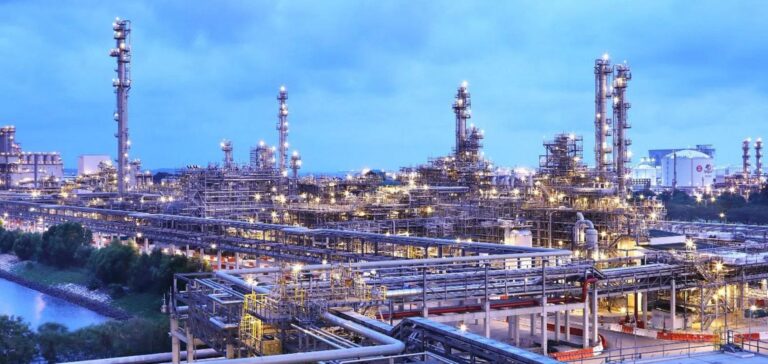Keppel Infrastructure and ExxonMobil Asia Pacific announced the signing of a memorandum of understanding (MOU) to develop access to low-carbon hydrogen and ammonia for scalable commercial and industrial applications in Singapore. In addition to being a carrier and storage medium for hydrogen, ammonia can be used directly as a carbon-free fuel or broken down into carbon-free hydrogen for use in power generation, as well as refinery and petrochemical operations.
A collaboration that meets Singapore’s environmental strategy
This MOU follows the Singapore government’s launch of the National Hydrogen Strategy in October 2022, which calls for hydrogen to meet half of Singapore’s energy needs by 2050. As part of this strategy, the Energy Market Authority and the Maritime and Port Authority of Singapore issued an expression of interest in December for proposals to build, own, and operate low- or zero-carbon power generation and refueling facilities on Jurong Island. Currently, natural gas meets most of Singapore’s power generation demand.
The collaboration between Keppel and ExxonMobil was formed in response to the call to develop competitive solutions that can support the sustainability goals of Jurong Island and Singapore’s hydrogen strategy. Keppel also plans to use low-carbon hydrogen for Singapore’s first hydrogen-ready 600 MW advanced combined cycle power plant. The Keppel Sakra Cogen power plant is expected to run on at least 30% hydrogen and will have the capacity to switch entirely to hydrogen. Currently under construction, the plant will be located on Jurong Island and is expected to be completed in the first half of 2026.
A power plant that can use ammonia as fuel
At the same time, given the high demand for low-carbon electricity in Singapore, Keppel is conducting a feasibility study to develop a power plant that could use ammonia directly as fuel on Jurong Island. This would complement Keppel’s offering as Singapore’s leading independent power producer and retailer.
ExxonMobil is advancing its large-scale low-carbon hydrogen production facility at its integrated ammonia complex in Baytown, Texas. The low-carbon hydrogen, ammonia and carbon capture facility is expected to produce 1 billion cubic feet of low-carbon hydrogen per day, making it the largest low-carbon hydrogen project in the world when it starts up in 2027-2028. More than 98% of the associated CO2 produced by the facility, or about 7 million metric tons per year, is expected to be captured and permanently stored.






















